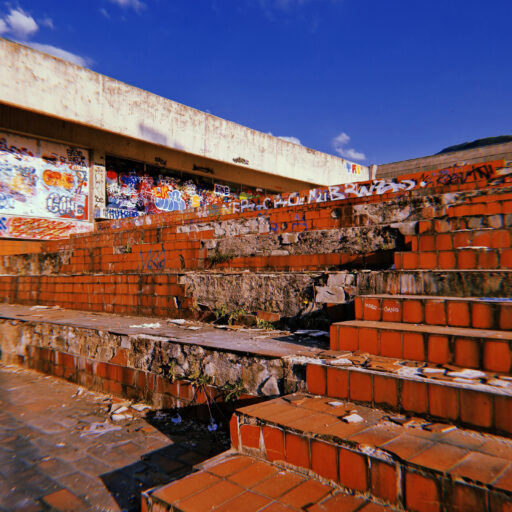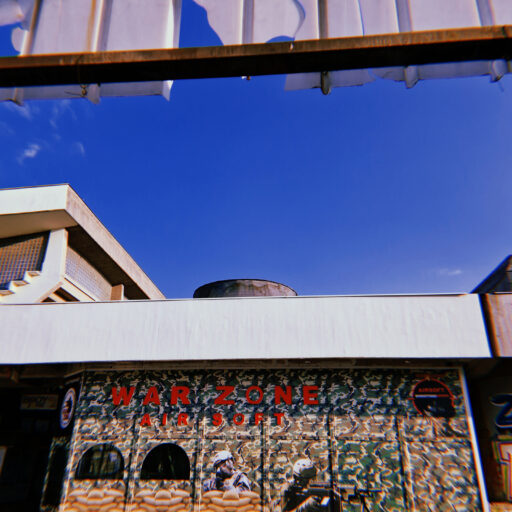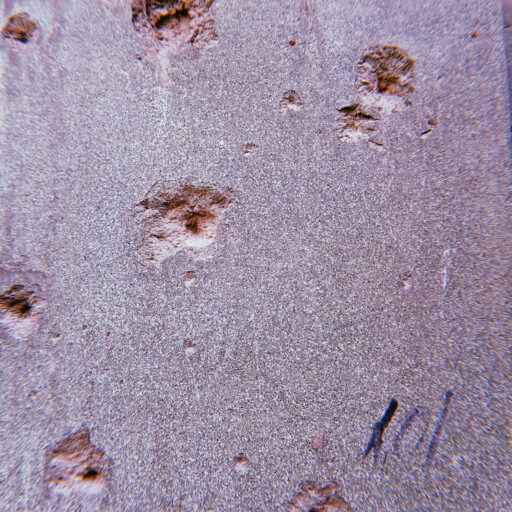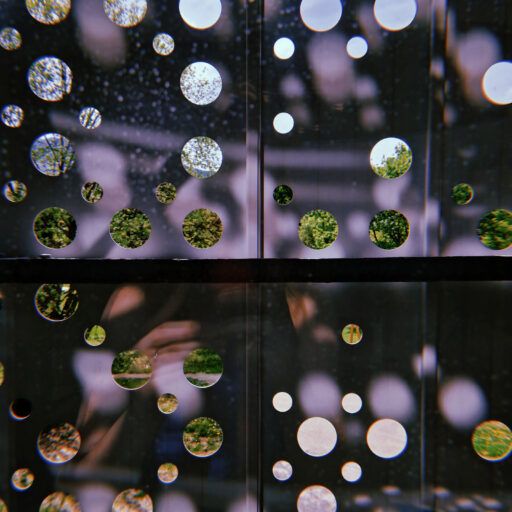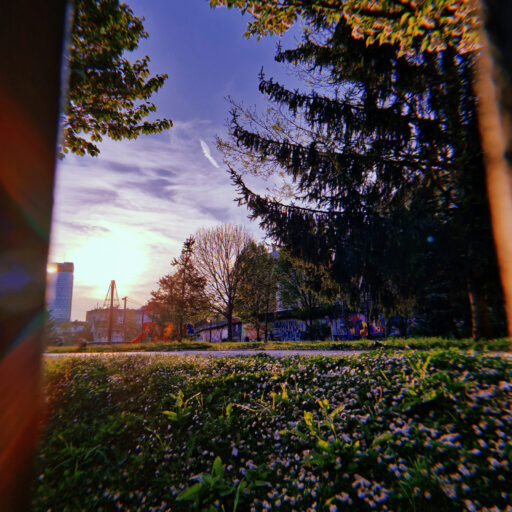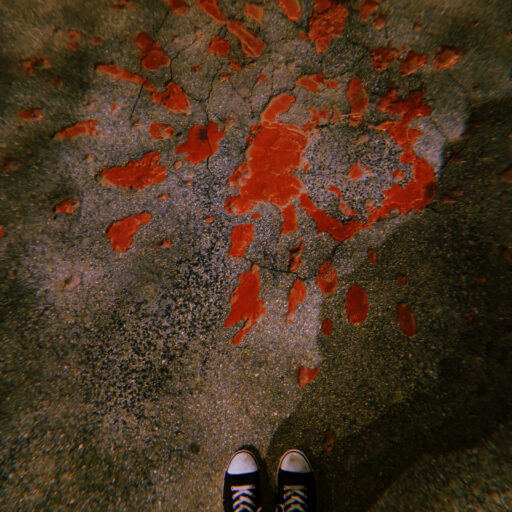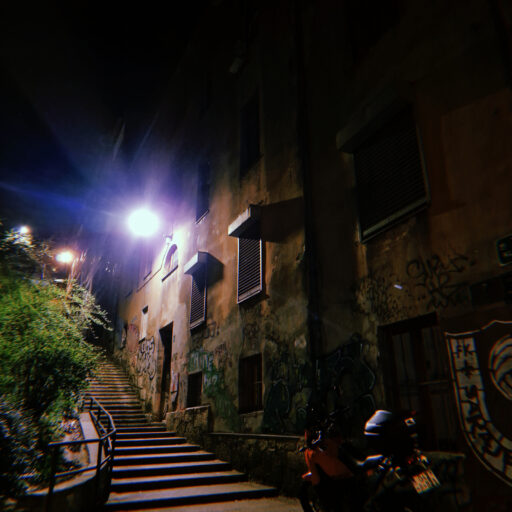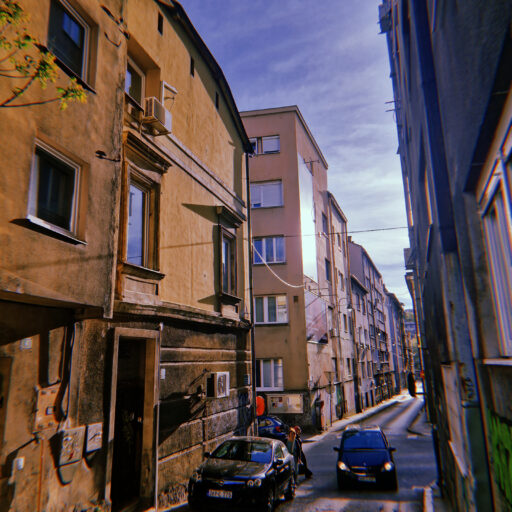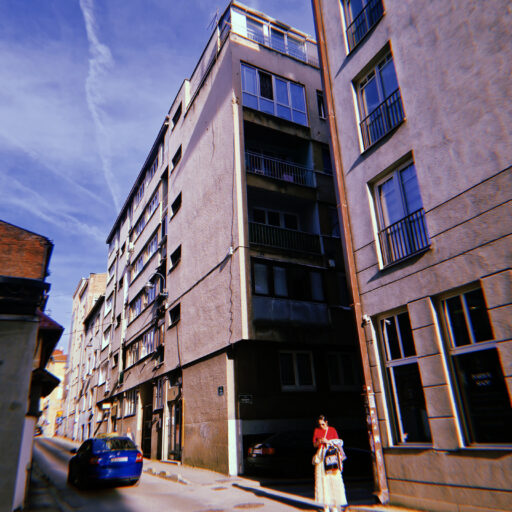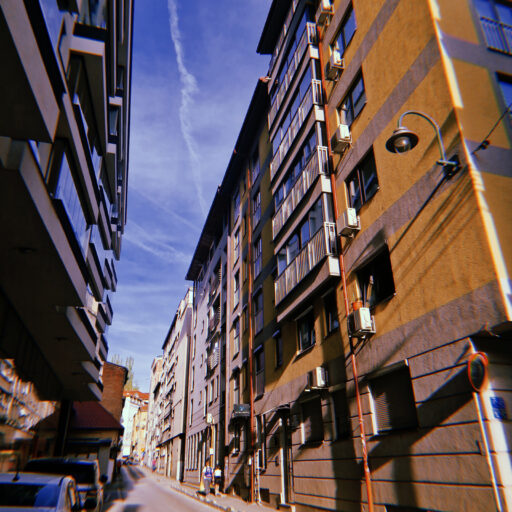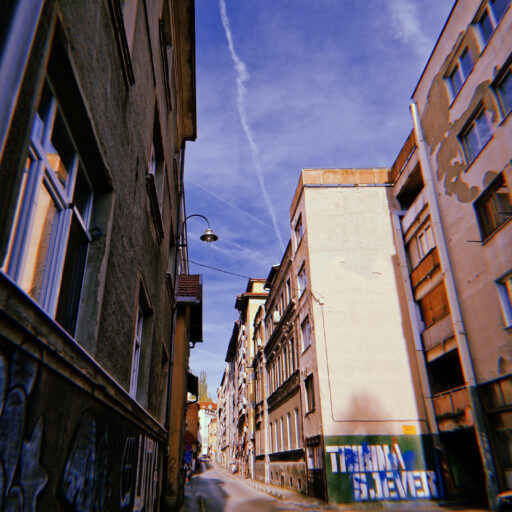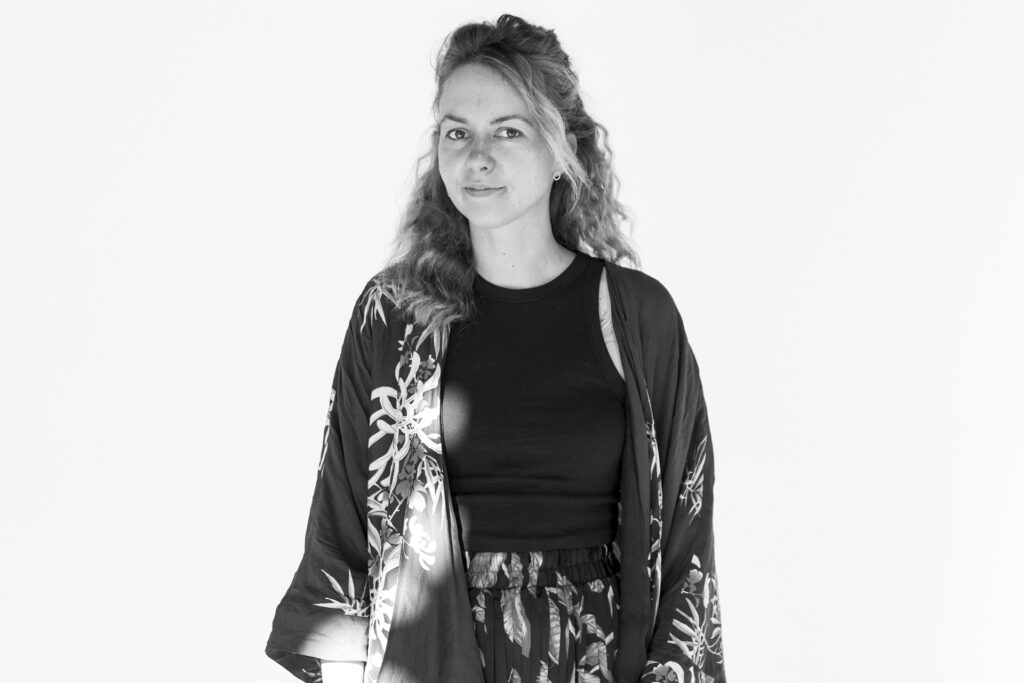
Dzvinka Hanna Pinchuk
Dzvinka Hanna Pinchuk is a Ukrainian photojournalist, local producer, and documentary filmmaker. A passionate lover of life, she is a rebel with a mental tan and an inner rhythm. Based in Kyiv, she primarily works in the East, covering the Russian-Ukrainian war. Her focus is on understanding the impact of war on society, language, the younger generation, and the perception of life. She has collaborated with The New York Times, The Daily Mail, Der Standard, and other notable publications.
Can Language Have PTSD?
by Dzvinka Hanna Pinchuk
During my week-long stay in Sarajevo, I spoke to different people from various backgrounds, professions, ages, and religions. Despite their diverse experiences, they all shared one common observation: After the siege of Sarajevo, most people had PTSD. If so many people have PTSD, how does it influence their language? Can language actually have PTSD as well?
The Ukrainian language is changing significantly because of the war. Words are absorbing new meanings, which sometimes are so relevant and strong that they, like baby cuckoo, push the initial meaning out of the lexical membrane.
For example, the word “prylit” (приліт) has always meant the arrival of a plane. But since the full-scale war started, the meaning of the word has totally changed. This change is not only because there are no more functional airports and planes in Ukraine but also because cities, towns, and villages are under constant attack by Russian missiles and drones. Now if you hear the word “prylit,” you immediately think of destroyed houses, people killed, and firefighters battling the flames. That’s our new reality–the only meaning of the word “prylit” now is “the arrival of a missile or drone.”
This phenomenon intrigued me, leading me to explore the language of Bosnia and Herzegovina. I wanted to compare and search for linguistic remnants of the war that have been integrated into the language and persisted for more than 30 years. I interviewed writers, translators, linguists, poets, and researchers to understand how this works. After spending a week in Bosnia, I have a rich collection of questions. Can war be washed out of language? How much is language influenced by war? Can language have PTSD, and if so, how can we detect it?
Some Ugly Words Came with the War
Ugly words meaning technical words, not beautiful ones. They are not even military vocabulary, just some expressions that became popular during the war and have remained ever since.
For instance, “odraditi nešto,” which means to get something done. People use it when talking about making a cake, having a conversation with a kid, or whatever. Everyone is “odradjuju.” The word is technical and implies doing something without being emotionally involved. That’s how I feel about that word. It’s like doing a job you really hate. For some reason, the word became popular and ever since, everyone is “odradjuju” everything. And I just don’t like it.
It reminds me of the war for some reason.
Adisa Bašić, Poet, novelist, assistant professor of poetry and creative writing at the University of Sarajevo
During the war, you become closer to the ancient meaning of words. War pushes you to start feeling words in a different way, words that you truly believe in.
For example, during the war, you can truly know what fear is. Of course, you can feel fear anywhere in the world, but during the war, it’s different. When I drink water, I understand what “water” really is. My thirst is different. I don’t want to say that I’m closer to the Stone Age, but you know, it’s different.
Every swallow of food tastes different, flowers smell different. That is the moment when we become closer to the nature of things.
Faruk Šehić, Novelist, poet
I do think that our language has PTSD because there is a whole new semantic field, terminology, and some expressions that became part of our language after the war.
For example, there are expressions you hear very often, like “Dobro je da ne puca,” which means, “It’s okay, there is no shooting.” This is a very common expression that has become part of our daily language. When you see a situation where people are indifferent, they might say something like, “It’s okay, they don’t shoot.”
It’s like everything is easier when they don’t shoot.
Edina Spahić-Šagolj, Associate professor at the University of Sarajevo, translator, researcher
Before the war, I didn’t know any military terms. Then you have to learn them. You have to learn them because your apartment is hit by a mortar, so you learn what a mortar is. You learn how it looks and what damage it causes. That’s what definitely happened to our language–it got enriched by military terms, by terms from the weaponry corpus.
Senada Kreso, Literary translator and conference interpreter
War becomes the new reality, but only for a limited period of time. For example, during the war, some people used to say the phrase “the warring parties” about us. People found it offensive.
We’re not the warring parties; we were attacked. We didn’t want to be a warring party. We didn’t come to a field and say, “Let’s play war. “ We were sitting at home and somebody came and started shooting at us. I’m not a warring party to anything.
Amira Sadiković, Professor of Translation and Interpreting Studies at the University of Sarajevo
I mentioned “prije rata” and how the world and life was divided between before the war and after the war. “Prije rata” became such a frequent phrase. You can hear kids who were not even born at that time say, “I know, before the war, it was like this and that.” And they are only three or five years old.
Adisa Bašić, Poet, novelist, assistant professor of poetry and creative writing at the University of Sarajevo
